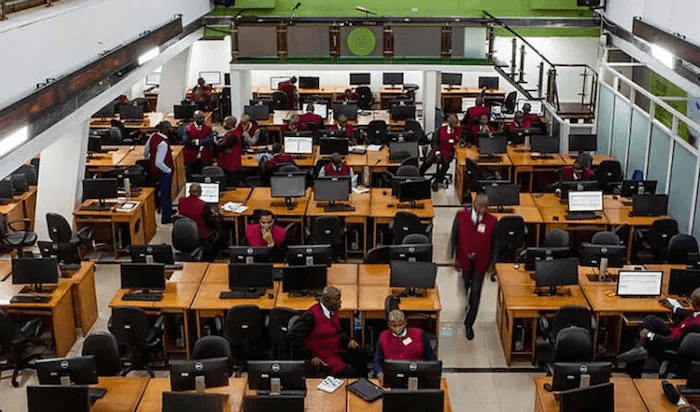Emmanuel Addeh in Abuja
There’s mounting uncertainty over the delayed renewal of the African Growth and Opportunity Act (AGOA) by the Donald Trump-led US government, triggering concern from some quarters, especially the United Nations Conference on Trade and Development (UNCTAD).
The UN body has therefore warned that prolonged inaction by Washington could undermine trade stability, investment confidence, and job creation across African countries, including Nigeria, Kenya, South Africa, among others.
THISDAY’s checks showed that AGOA was signed into law by the then US President, Bill Clinton, on May 18, 2000, as part of the Trade and Development Act of 2000. It was designed to deepen trade and investment ties between the United States and sub-Saharan African countries, granting eligible nations duty-free access to the US market for over 6,000 products, including agricultural goods, textiles and manufactured items.
Since its enactment, AGOA has been renewed several times notably in 2004, 2008, and 2015, each time extending its duration and expanding its scope. The most recent renewal, signed by President Barack Obama in 2015, extended the programme for 10 years, setting its expiry date at September 30, 2025.
But hope has been dashed as the future of the Act hinged on congressional action to renew or amend it before that deadline did not happen before its expiry. This development is coming amid growing debate in Washington over its effectiveness and the changing global trade environment.
But in a document assessing the implications of the stalled decision, the UN said the absence of clarity on AGOA’s future was already discouraging long-term business commitments and exposing vulnerable economies to renewed shocks.
The body urged the US Congress to expedite the renewal process, noting that further delays could erode the progress made under the two-decade-old trade pact that has served as a cornerstone of Africa–US economic relations.
Besides, African governments, businesses, among others, warned that the prolonged US inaction could disrupt trade flows, weaken investor confidence, and stall regional growth.
“Unless the African Growth and Opportunity Act (AGOA) is renewed, African exporters of agricultural products and light manufactures could face shrinking market access to the United States, undermining prospects for diversification,” the UN organisation said in the document seen by THISDAY.
A chart showing how the development would impact African nations indicated that before January 2025, Nigeria paid no tariffs (0 per cent) on AGOA-eligible exports to the US. In the same vein, it stated that under the Act, about 35.9 per cent of Nigeria’s total exports to the US benefit from AGOA.
The chart also broke down which sectors would be most affected now that AGOA has ended, including: Minerals and chemicals (71 per cent) —including crude oil and related products, Nigeria’s main export under AGOA.
Also included are: Metals, machinery, and transportation (21 per cent), which is an umbrella for items like manufactured metal goods and vehicles; agriculture and food (7 per cent) — plus crops and processed foods while, while textiles and apparel, including clothing and fabrics have 1 per cent of the total trade.
According to the UNCTAD report, since its launch in May 2000, AGOA has supported sub-Saharan African exports to the US through preferential access. However, the recent expiry of the scheme, it said, would threaten export diversification and industrialisation across the continent.
“African and non-African exporters are already facing increased trade barriers in the US market. Country- and sector-specific tariffs that have been introduced by the US since April 2025 have increased tariffs for the average AGOA country from below 0.5 per cent to 10 per cent. For key exports, such as agriculture and food products, metals, machinery and transportation, textiles and apparel, they have already triggered a double-digit increase in duties.
“The expiry of AGOA would disproportionately affect Africa’s light-manufacturing exports to the US, namely apparel and agro-food products, such as fish and dried fruits. Without AGOA’s preferential treatment, the 32 countries that received preferences until September 2025 would face a second wave of tariff increases as country-specific and sectoral tariffs would be added on top of most-favoured nation (MFN) rates, instead of the current preferential treatment under AGOA.
“Due to varying tariff rates and exceptions for sensitive raw materials, African exports of agricultural goods and manufactured products would be subject to tariffs that are 2-to-3 times higher than those applied on fuels and minerals,” the UN organisation stated.
According to the report, exporters of mined commodities are the least affected by the US tariff changes on African goods.
Countries like the Democratic Republic of Congo, Nigeria or Angola—whose exports are primarily fuels and minerals, the report said, face minimal tariff increases, as their main exports, already benefit from low MFN tariffs, or exemptions from additional duties.
More diversified economies, such as South Africa, are less exposed to AGOA’s expiry but have already experienced significant tariff increases this year due to country-specific and sectoral tariffs, the UN added.
“AGOA’s expiry could further hinder Africa’s industrialisation and export diversification. Since most US imports from AGOA-eligible countries already consist of fuels, metals, and agricultural raw materials, the end of the trade pact could further exacerbate commodity dependence.
“Labor-intensive sectors, like apparel and agriculture, could be disproportionately affected, with negative repercussions not only on export diversification, but also on poverty reduction and women’s employment,” it stressed.
If AGOA is not renewed, nine African countries will face an average US tariff of 15 per cent or more—up from just 3 per cent today, the report emphasised.
“Small exporters specialising in apparel and agricultural products, such as Lesotho, Kenya, Cabo Verde, Madagascar and the United Republic of Tanzania, would be among the most affected, with average trade-weighted tariffs doubling to 20 per cent or higher.
“This would imply that African exports to the US could face higher tariffs than those from many developed countries. As such, it would be at odds with the commitment to support developing countries’ integration into the global market,” UNCTAD said.
According to the UN body, AGOA exports refers to the share of exports to the US eligible under AGOA and not total exports.
Although through AGOA, Congress seeks to increase US trade and investment ties with the region, promote economic growth through trade, and encourage the rule of law and market-oriented reforms, the latest efforts to renew it have not been successful. There are currently 32 AGOA-eligible SSA countries, of 49 potential programme country beneficiaries.
A US Congress document seen by THISDAY showed that in 2024, US AGOA imports totaled $8.0 billion, down 13 per cent from $9.3 billion in 2023. AGOA imports remain concentrated in a few countries and industries, but diversification has grown since the 2000s.
Crude oil imports stood at $2.0 billion in 2024, and comprised 25 per cent of AGOA imports. Such imports peaked in 2011 with a value of $48 billion, but have fallen partially due to expanded US production. Nigeria was the top AGOA supplier of crude oil to the United States in 2024 ($1.6 billion).
Non-energy imports in 2024 were valued at $6.0 billion. Top non-energy import categories include: Passenger vehicles ($2.4 billion), apparel ($1.2 billion), agricultural and food products ($949 million), base metals ($711 million), and chemicals ($251 million).
In October 2024, the Nigerian government called for an extension of the AGOA beyond its 2025 deadline. Speaker, House of Representatives, Tajudeen Abbas, made the call while speaking during the AGOA training workshop organised by USAID and Prosper Africa for stakeholders in Nigeria’s Textile and Apparel industry.
Abbas said AGOA has been crucial in fostering trade and economic development between Africa and the United States by providing African countries access to US markets and allowing them to diversify their economies beyond raw materials.
He, however, noted that even though Nigeria is a beneficiary of the policy and has great potential to capitalise on the opportunities, many Nigerian businesses remain unaware of the programme, thus limiting their chances of benefitting from it.
Elsewhere, Kenyan President William Ruto said during the recently ended UN General Assembly: “I will be asking (Trump) for the US to consider seriously renewing and extending AGOA for at least a minimum of five years.” “It is a platform that connects Africa and the U.S. in a very fundamental way,” he added.
AGOA-dependent industries likely employ some 1.3 million people whose jobs are now at risk — in countries where many people have few if any other options in the case of sudden unemployment.
In Kenya, more than 66,000 people, many of them women, were employed through now-vulnerable textile and apparel exporters to the US. In the garment districts of Kenya’s bustling capital, job cuts and fears over livelihoods have already begun, it was learnt.


